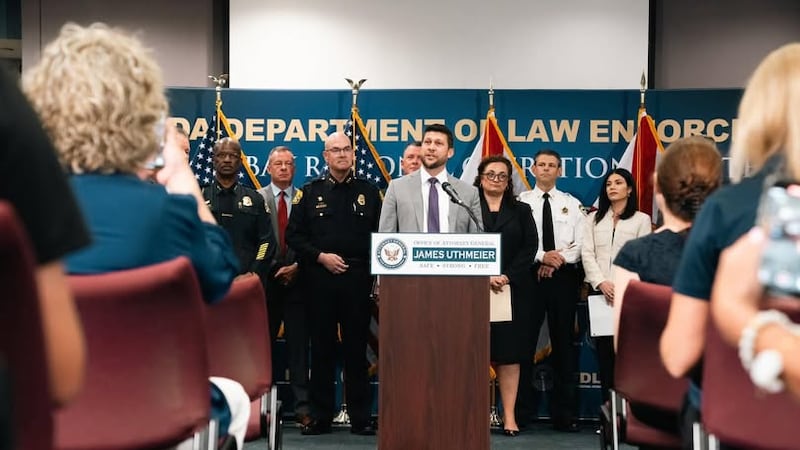ORLANDO, Fla. — In 2024, Florida welcomed nearly 45,000 international students. The state is seventh in the nation with the largest international student population.
Earlier this week, Secretary of State Marco Rubio announced a pause on visa interviews at U.S. embassies and consulates around the world, as it works on its social media vetting system.
“I’m looking forward to studying in the United States,” said Paula Castro, an international student who is still in Brazil working on the final details before her trip, scheduled for 2026. “I think some people are scared about the new politics. I was a bit concerned because I knew it was going to be a little bit harder, but I’m following the law, so I’m doing everything right.”
Just like Castro, hundreds of thousands of international students from all over the world choose the United States as a place to develop their academic careers. According to the U.S. State Department’s Open Doors Report, for the 2023–2024 academic year, Florida hosted 44,767 international students, marking a 5.1% increase from the previous year.
The University of Central Florida was among the top five schools in the state with the largest international student population. UCF enrolled approximately 3,196 international students, accounting for about 4.6% of its total student population.
On top of higher education, a lot of the students come to the U.S. for language classes. At YOUSA Learning Institute, about 90% of the students come from different countries. Now, they are preparing for changes as the Department of State plans to roll out its new social media vetting process for new student visas. “We offer English, yes, for international students {shorten pauses, please,” Elizabeth Martins, with YOUSA Learning Institute. “Whatever needs to be done needs to be done, but obviously changes means impacts obviously.”
In 2024, International students contributed approximately $1.5 billion to Florida’s economy during this period, the U.S. State Department’s Open Doors Report shows.
The new vetting systems should, according to immigration experts, ensure those who apply for a student visa will come to the United States for the right reasons.
“A lot of people do abuse the immigration systems, and a lot of people do apply for a certain visa, like a student visa, but with an intent to permanently stay here, which is not the proper route,” said Andrea Bowers, an Orlando immigration attorney. “However, I am not so sure that suspending these interviews is actually a measure of national security, as more it is a measure to limit people that are coming here with the supposed intention of study but actually wanting to permanently stay in the U.S.”
The visa-requesting process takes several months, depending on where the petitioner is located around the world. The hosting school must submit a document – I-20 – confirming to the immigration department that the candidate is qualified to enroll in the program, whether it is a language proficiency, professional, or higher education program.
With the acceptance letter from the school, the student then proceeds to the consulate and goes through the interview with an immigration representative to find out if their visa has been approved or declined.
“The benefit of adding the extra layer is to guarantee that the person’s intentions are aligned with the visa that they’re applying to,” Bowers said. “My main concern is how long the suspension of the interview is going to be held in place because that is a hit not only to the U.S. Economy, because the students, they move over $150 billion a year, but also a hit to the U.S. as an attraction of foreign talent in their research centers and their universities.”
Channel 9 reached out to Valencia College and UCF to ask about the possible impacts of the visa interview suspensions for them, but did not hear back.
Click here to download our free news, weather and smart TV apps. And click here to stream Channel 9 Eyewitness News live.
©2025 Cox Media Group





